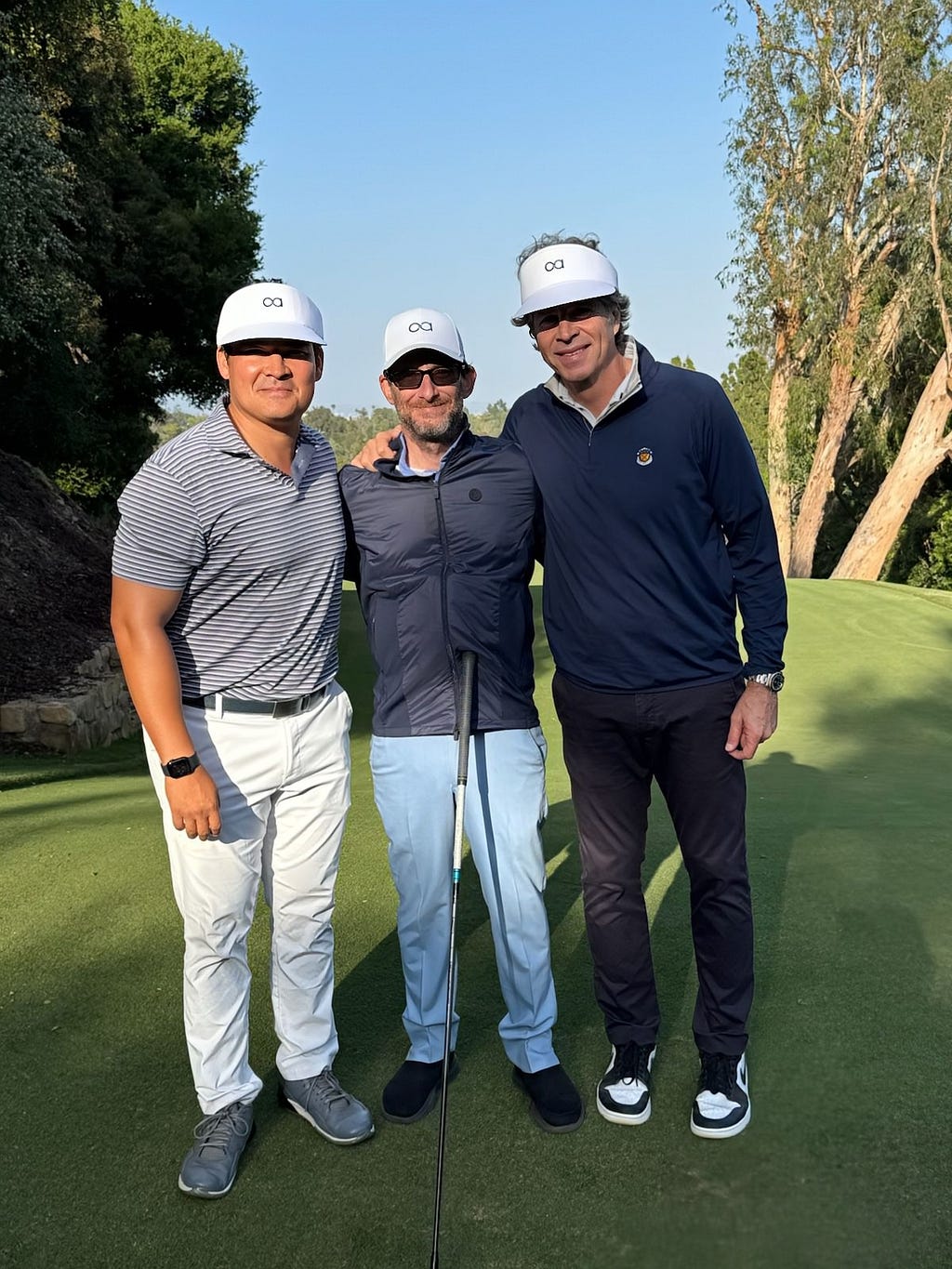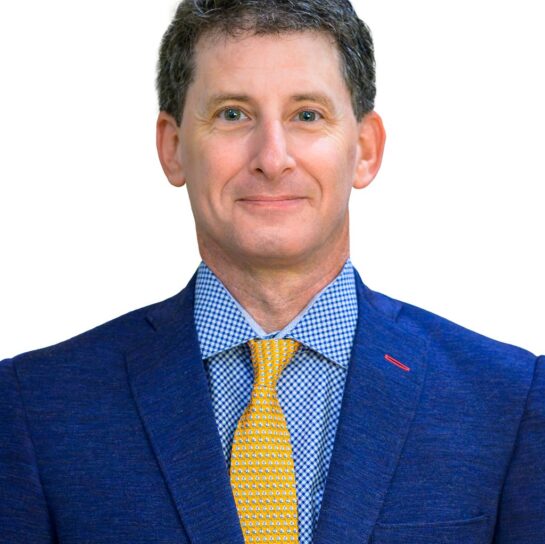An Interview With Chad Silverstein
No Debt: We don’t lever our companies, which allows them to grow organically without the burden of debt.
In the world of business and within every industry, there are forward-thinking leaders who go against the status quo and find success. Their courage to take risks, embrace innovation, and inspire collaboration separates them from the competition. Until 2002, Apple’s famous slogan was “Think Different”. This attitude likely helped them become one of the most successful organizations in history. This interview series aims to showcase visionary leaders and their “status quo-breaking” approach to doing business. As part of this series, I had the pleasure of interviewing Andrew Sachs.
Andrew Sachs, Founder and Managing Partner of Mauloa, has spent three decades in private equity, investing in and advising more than forty companies. Mauloa, which means “Endless” in Hawaiian, is a unique private equity boutique that offers patient capital exclusively to cash flow positive companies. Unlike traditional firms, Mauloa empowers business owners to maintain control over their destiny while providing the resources and capital necessary for sustainable growth.
Thank you so much for doing this with us! Our readers would love to get to know you a bit better. Can you tell us your “Origin Story”? Can you tell us the story of how you grew up?
I was born in Los Angeles and grew up in San Diego, where I attended La Jolla Country Day School and played golf at Torrey Pines for just $5. My early dream was to become a professional golfer, often competing with the likes of Charley Hoffman at Stone Ridge Country Club. However, fate had other plans, and I soon discovered a natural talent for math and problem-solving.
I attended Georgetown University’s School of Foreign Service, where I completed a dual degree — an MBA and a General Course degree from the London School of Economics. Initially, I envisioned a career as an economist or lawyer, but my path took an unexpected turn when I found my way into private equity.
Can you give us a glimpse into your journey into this industry and share a story about one of the most significant challenges you faced when you first started out? How did you end up resolving that challenge?
My career began at Morgan Stanley Capital Partners in New York, then the second-largest buyout fund in the world, led by industry giants like Alan Goldberg and Frank Sica. But my path shifted when my cousin, Kevin McCollum, a rising Broadway producer, won his first Tony Award for RENT. We partnered to launch KMS Investments, marking the start of my entrepreneurial journey.
Transitioning from a prestigious PE institution to my own startup was incredibly challenging. I had no established deal flow, no infrastructure, no team, and limited capital. My success hinged on understanding the power of networking, building relationships, carving out my own niche, and relentless hard work.
My first investment was in a small CRM company in 1998, just as the internet was taking off. The opportunity arose through a new connection in my fiancé’s law school class. The company struggled to secure capital because it didn’t fit neatly into traditional investment categories. I structured a small investment that not only launched my career but also opened doors to future opportunities.
Who has been the most significant influence in your business journey, and what is the most significant lesson or insight you have learned from them?
Joshua Freeman, with whom I co-founded Bethany Partners, has been the most significant influence on my career. Our fund was built on the simple yet powerful thesis of investing in local, growing companies with high-quality management teams in the Washington, DC region. Josh taught me the profound importance of supporting people and communities, not only as a moral imperative but as a driver of long-term business success.
Tragically, on December 14th, 2006, Josh’s life was cut short in a helicopter crash. His loss was devastating, but his lessons continue to guide me.
Can you share a story about something specific that happened early on that you would consider a failure but ended up being a blessing in disguise or ended up being one of the most valuable lessons you had to learn on your own?
My first investment, the CRM company, went public just six months after my involvement, and I had the opportunity to sell at 20 times my original investment. However, caught up in the internet bubble, I held on, convinced that the stock was undervalued compared to competitors. Eventually, I lost everything. This experience taught me the dangers of following the herd and the importance of making decisions based on intrinsic value rather than market hype. I consider this my “PhD in investing” — an invaluable, albeit costly, education.
Leading anything is hard, especially when grappling with a difficult situation where it seems that no matter what you decide, it will have a negative impact on those around you. Can you share a story about a situation you faced that required making a “hard call” or a tough decision between two paths?
In business, most decisions involve shades of gray and can impact those around you. I always ground myself in what’s best for the company in the long term. In one challenging situation, we faced the need to replace a CEO who wasn’t performing, despite the board being controlled by the CEO’s family. Convincing the board to make this change was difficult and strained relationships, but it was the right decision for the company’s future, ultimately leading to a successful sale.
Let’s shift our focus to the core of this interview about ‘Successful Rule Breakers’. Why did you decide to “break the rules”? Early on, did you identify a particular problem or issue in how businesses in your industry generally operated? What specifically compelled you to address this and want to do things differently? Please share how you went about implementing those changes and the impact they had.
I’ve always been a contrarian thinker, naturally inclined to challenge existing paradigms. In private equity, the misalignment of incentives, particularly around debt levels and exit timelines, struck me as fundamentally flawed. I founded Mauloa to address these issues, creating a fund that doesn’t rely on debt, imposes no forced exit timelines, and only makes non-control investments. We believe that business owners who work in the company every day should control their destiny. While this approach may not maximize IRRs, it considers the broader impact on jobs, communities, and sustainable growth.
In the ever-changing business landscape, how exactly do you decide when to adhere to industry norms versus “breaking the rules” and forging your own way? Can you share an example?
I’m guided by what’s best for the company’s long-term success, which is often rooted in people. We deliberately chose not to have the ability to sell, ensuring our interests are always aligned with majority ownership. For instance, we’ve had opportunities to pursue dividend recaps but opted against it, as it wasn’t the right strategy for the company’s long-term health.
What guidance or insight can you offer to new entrepreneurs trying to follow existing and accepted industry norms while at the same time trying to differentiate themselves in the marketplace?
Building a great business takes time — often much longer than people anticipate. Don’t be swayed by the herd mentality. High valuations and excessive capital raises aren’t necessarily paths to long-term success. Focus on building a strong team and maintaining a long-term vision for your business. Remember, true success is rarely overnight.

Here is the main question of our interview. To make an impact, you have to champion change, get creative, and take risks. Please think back about the decisions you’ve made that have helped your business get to where it is today, and share your top 5 strategies or decisions that helped you succeed by doing things differently. If you can, please share a story or example for each.
- Non-Control Investments: Unlike most PE firms, Mauloa invests without seeking control. We’re content owning less than 50% of the equity and allowing management to retain control.
Kevin O’Connor, co-owner of O’Connor Plumbing, shared, “Mauloa’s refreshing approach to growth capital allows us to maintain control of the company while leveraging their operational expertise and formidable network to make a great community business even better.”
2. No Debt: We don’t lever our companies, which allows them to grow organically without the burden of debt.
Danny McKearan, owner of Ducky Recovery, said, “Mauloa allowed us to prosper because we weren’t forced to put debt on our company, which allowed us to maintain a strong balance sheet and to grow organically.”
3. No Exit Timeline: We don’t force owners to sell, enabling them to control their own destiny.
Bob Brody, Chairperson of AlphaStaff, noted, “Most PE firms would have forced us to sell by now. Mauloa’s investment structure allows us to invest for the long term and mutually benefit.”
4. Annual Distributions: We prioritize generating annual distributions for both investors and business owners.
Donnie Gross, founder of TLK Group, highlighted, “Thanks to our aligned incentives, Mauloa helped us grow cash flow, allowing all parties to enjoy annual distributions.”
5. Size and Structure: We intentionally maintain a smaller fund to access a larger investment universe, but we’re agile enough to scale up when necessary.
Andrew Schwartzberg, a Mauloa anchor investor, explained, “Having been a limited partner in large PE firms, it’s common to pay exorbitant fees without strong returns to show for it. Mauloa is the opposite, generating annual cash flow via distributions and utilizing a hybrid fund structure to reduce fees.”
As a leader, how do you rally others to align with your vision? Also, how do you identify those who may not be fully committed or even silently sabotaging or undermining your efforts? What steps do you take to address these situations?
The entire PE industry often disagrees with our approach because it doesn’t fit the traditional model of maximizing insider profits. We’re used to facing skepticism and sabotage, but it doesn’t deter us. We’re confident that our strategy is the best for the companies we invest in, their people, their communities, and ultimately, for the broader economy.
Imagine we’re sitting down together two years from now, looking back at your company’s last 24 months. What specific accomplishments would have to happen for you to be happy with your progress?
I would be thrilled if more investment professionals embraced our strategy, focusing on long-term outcomes for all stakeholders.
You are a person of enormous influence. If you could inspire a movement that would bring the most amount of good to the most amount of people, what would that be? You never know what your idea can trigger. 🙂
My movement would be to demonstrate that our five differentiators aren’t just a better way to invest — they’re a better path for society as a whole.
How can our readers continue to follow you or your company online?
Thank you so much for sharing all of these insights. We wish you continued success and good health!
About the Interviewer: Chad Silverstein, a seasoned entrepreneur with over two decades of experience as the Founder and CEO of multiple companies. He launched Choice Recovery, Inc., a healthcare collection agency, while going to The Ohio State University, His team earned national recognition, twice being ranked as the #1 business to work for in Central Ohio. In 2018, Chad launched [re]start, a career development platform connecting thousands of individuals in collections with meaningful employment opportunities, He sold Choice Recovery on his 25th anniversary and in 2023, sold the majority interest in [re]start so he can focus his transition to Built to Lead as an Executive Leadership Coach. Learn more at www.chadsilverstein.com
Successful Rule Breakers: Andrew Sachs Of Mauloa On How To Succeed By Doing Things Differently was originally published in Authority Magazine on Medium, where people are continuing the conversation by highlighting and responding to this story.
